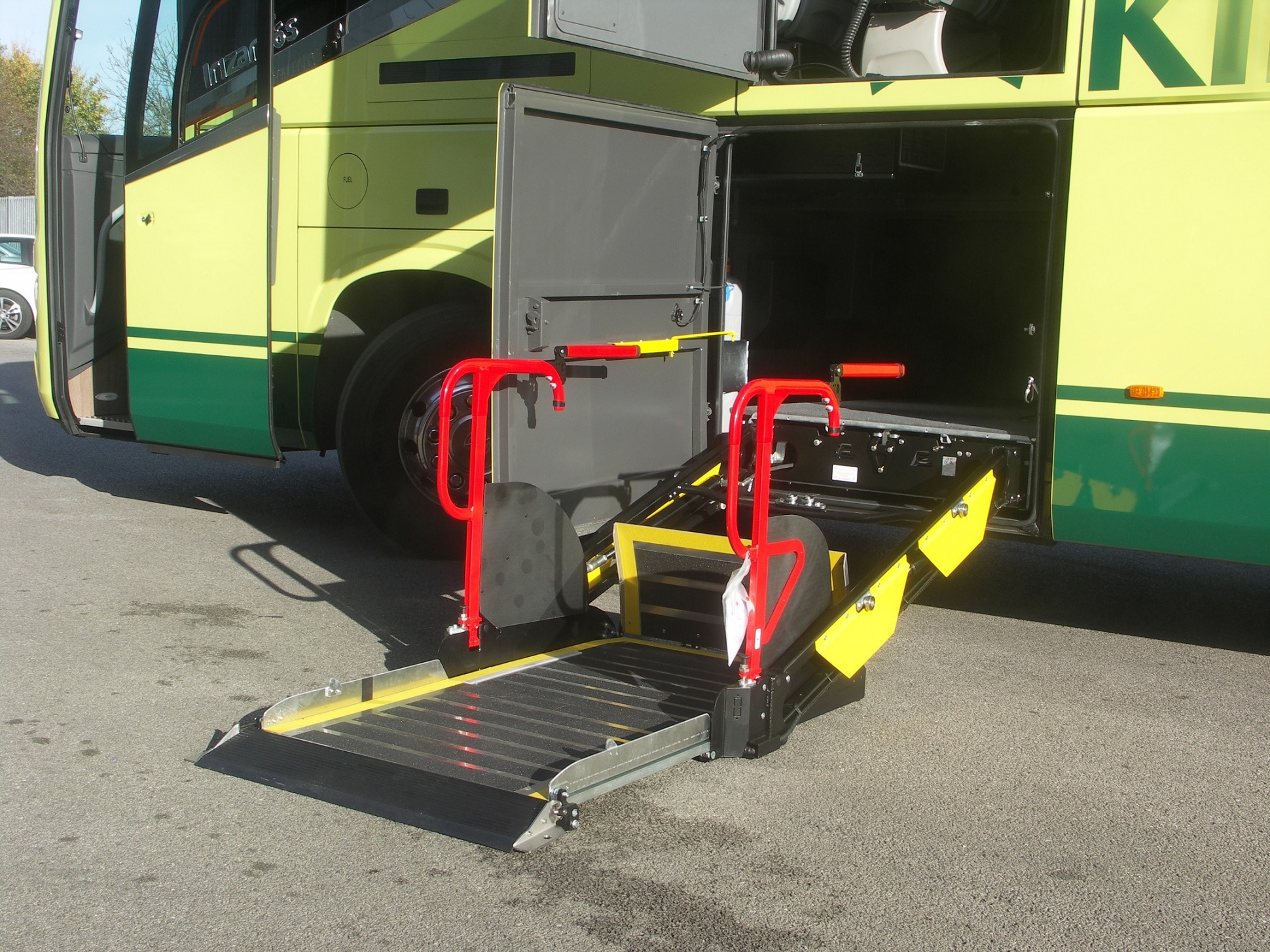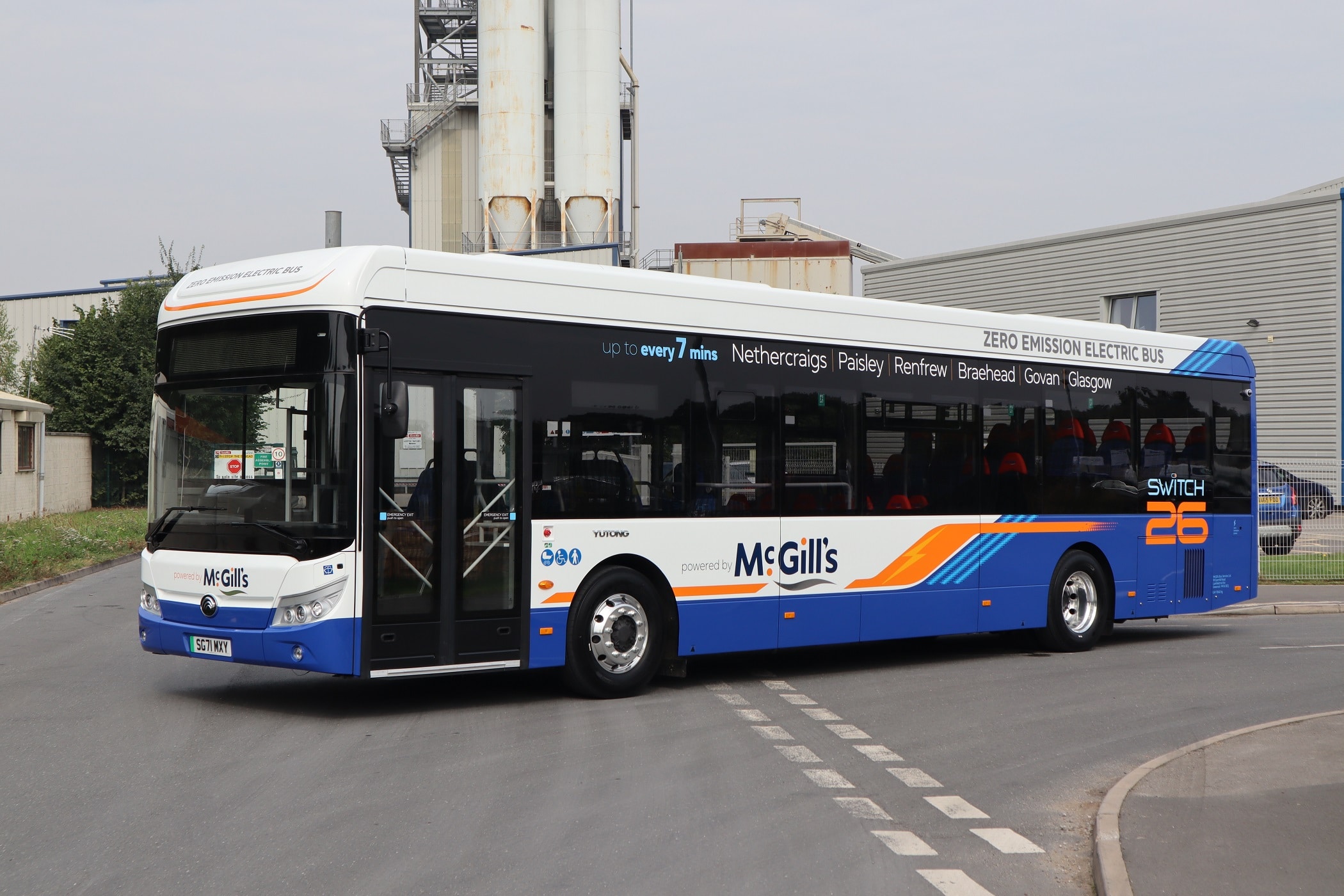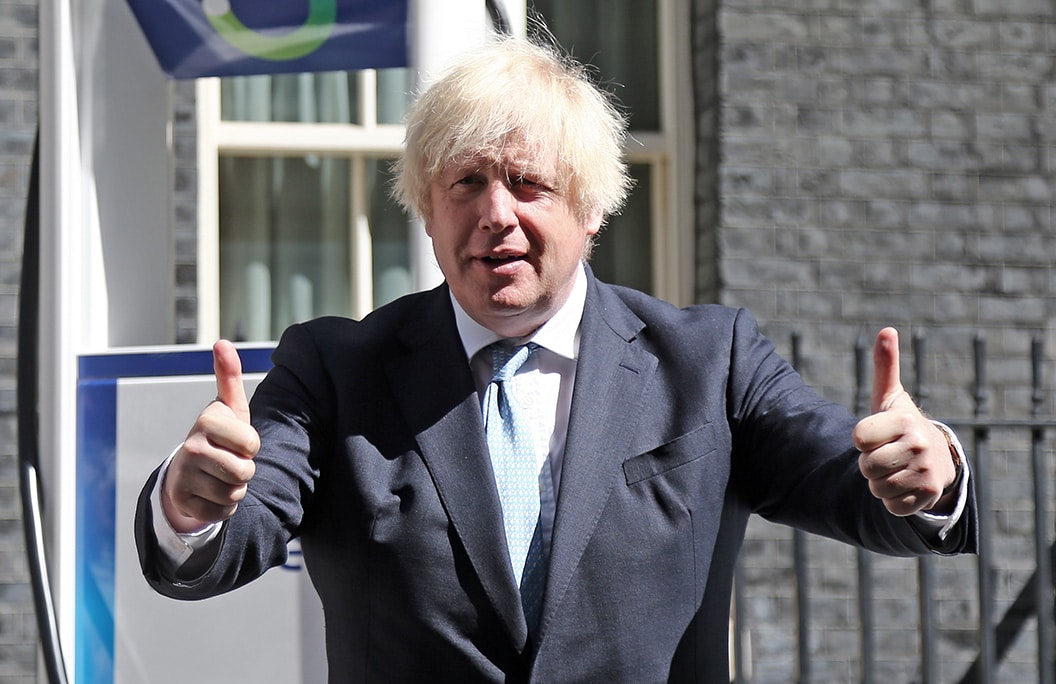Two items are particularly prominent on the coach industry agenda: Decarbonisation and PSVAR. And as noted by RHA Operations Manager – Coach Sector Andy Warrender recently, they will interact more closely in the longer term as both battery-electric vehicles and the requirement for accessibility each increase in prominence.
That is because the power consumption and additional vehicle weight imposed by a lift will be a greater consideration when onboard energy storage is provided by a range-limited battery rather than a tank of diesel.
PLS is a major player in the supply of lifts for coaches, both ex-factory models and those that are retrofitted. It recognises that as the number of vehicles in the market that are both PSVAR compliant and zero-emission eventually grows, attention will quickly turn to ensuring that no range penalty is generated by the installation and operation of a lift.
Zero-emission factors into PLS coach lifts development
PLS’s coach lifts are simple to use and robust. Managing Director Adam Beck is critical of how the Department for Transport (DfT) is handling the current uncertainty around the future of PSVAR, but the Smethwick-based supplier has been pushing ahead with engineering products that suit zero-emission accessible coaches regardless of that.
Such impetus came first in the accessible minibus sector. There, several battery-electric models from multiple manufacturers are available and weight and range considerations are particularly critical. Learnings in that sector have translated to the new lightweight MegaEco brushless coach lift. It is a cassette-sized product that is currently at an advanced stage of development.
Power consumption: Lower and smarter in new PLS lifts
The brushless motor configuration is key to reducing power consumption, but weight has also been a major consideration for PLS.
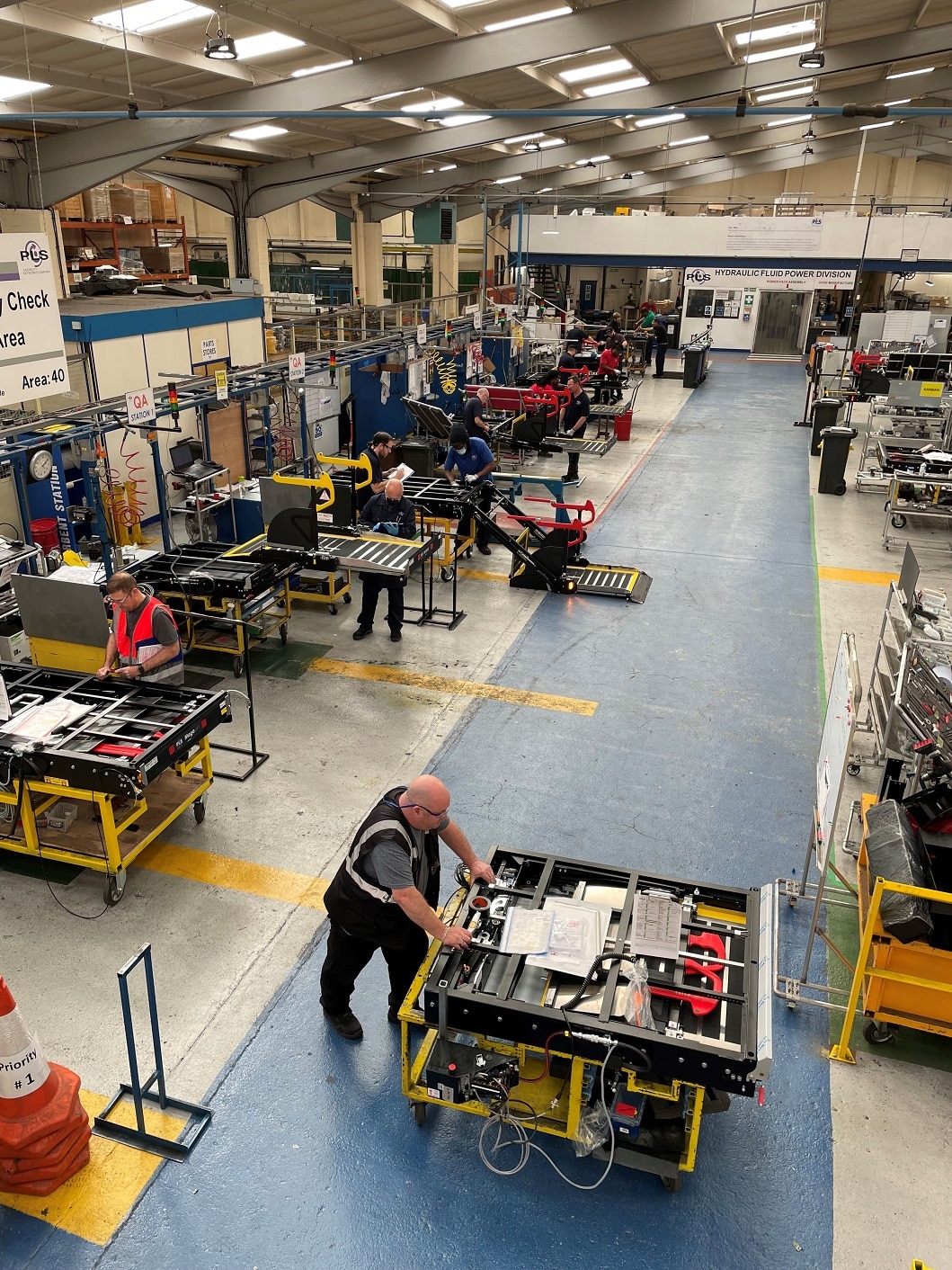
“We knew that the question around how our lifts fit with zero-emission vehicles would be asked, so we started work in readiness for the first battery-electric minibuses,” says Adam.
“There are two parts to what we have done. The first was to remove weight. For that we have used ultra-high tensile steel. It is 2.5 times stronger than standard steel and has taken 25kg out of a lift for a coach application.”
The power consumption of a lift has never been a consideration in diesel-fuelled accessible coaches, but that will change with battery-electric. When the MegaEco prototype was constructed, it proved to be around 80% more efficient than its predecessors.
That saving will be furthered through the MegaEco’s ability to regenerate energy when the platform is lowering. Previous models cannot do that, and their draw of 70A for around 30 seconds is substantial, particularly when the lift is cycled multiple times. The MegaEco, in contrast, will draw 5-8A when connected to a 24v supply. Its brushless motor is also simpler than a brushed example.
A lift with a brushless motor can also raise or lower more quickly. With a brushed motor, the speed of operation is constant, and hence consideration must be made of a smooth start and finish to the cycle. For a brushless example, the speed can be varied. Such an approach allows a slow start and finish but a faster middle.
For the MegaEco, a future aspiration by PLS is for the lift to be linked to an app to diagnose faults and capture data. One of the most important things for lift reliability is for them to be cycled fully when used. Not doing so is a common cause of faults, Adam says.
DfT ‘must clarify its PSVAR plans’
While brushless motor-equipped lifts stand to be “a gamechanger” when zero-emission extends its reach in the coach sector, they will have the same compact space claim as existing PLS products, Adam continues. He is sceptical of recent suggestions that as part of work around the government’s pending review of PSVAR, some lifts could be configured to remain within the footprint of the coach and instead raise from the luggage bay via a portion of the saloon floor.
“A cassette lift is by far the better solution. But the key now is for DfT to clarify what its plans are around PSVAR.” That, combined with ongoing uncertainty of what will be required from 2022 onwards, has seen a brake applied to some operators’ work to retrofit existing coaches. While momentum in that field was strong, the pace at which new orders are being placed has slowed recently, indicating that some in the industry now wish to see what happens politically before pushing ahead with further conversions.
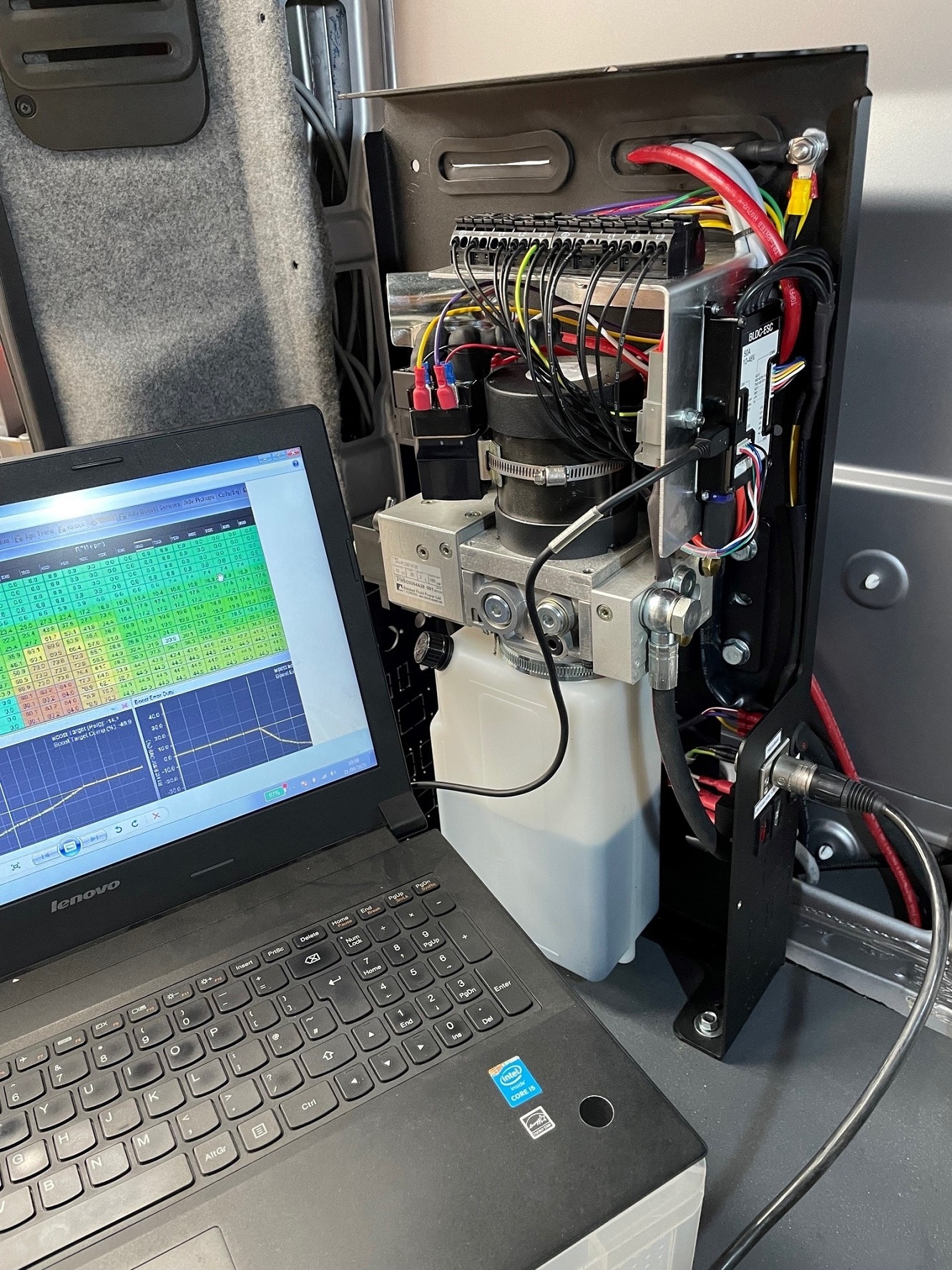
“That is disappointing, although converters are still busy as they had accumulated such a backlog of orders,” Adam continues.
But the case for inclusive transport – which is central to PSVAR – will likely sustain orders for lifts in the longer term, regardless of how closely DfT listens to the proposals that have been put across by trade bodies, he believes.
PLS already has brushless lifts in production for battery-electric minibuses. It has now built around 50 of them. While coaches are behind that transition curve, a 12v prototype MegaEco has been constructed and a 24v example will follow.
PLS has already agreed to demonstrate the brushless product to a coach OEM. That indicates how it is not the only member of the industry’s supplier base that is considering how two of the sector’s bigger challenges will interact in the long term.





















